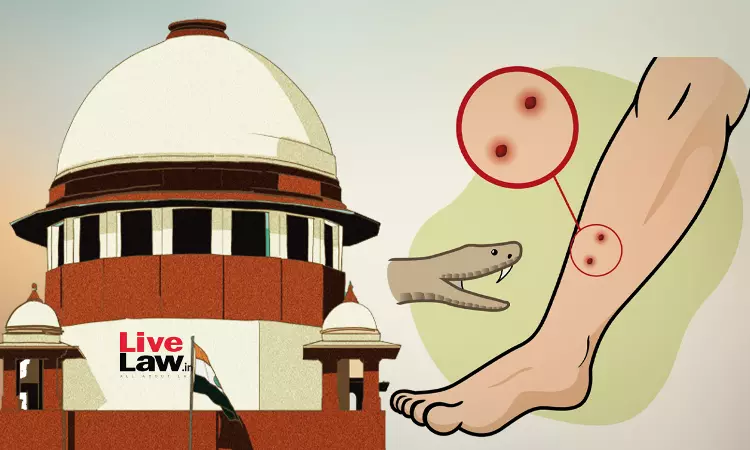Supreme Court Issues Notice On PIL Raising Issue Of Snake Bites In India
Debby Jain
13 Dec 2024 8:30 PM IST

Next Story
13 Dec 2024 8:30 PM IST
The Supreme Court today issued notice on a public interest litigation assailing non-availability of treatment (anti-venom drugs, etc.) and lack of awareness related to snake bites in the country.A bench of Justices BR Gavai and KV Viswanathan passed the order, calling for the response of Union of India as well as the States/Union Territories impleaded as party-respondents.Briefly put, the...
